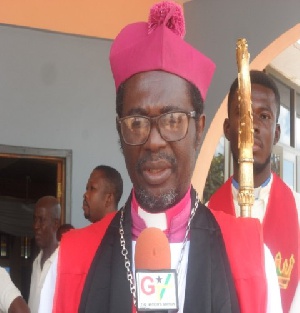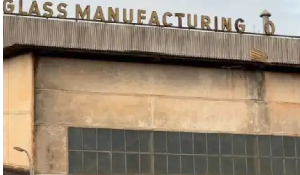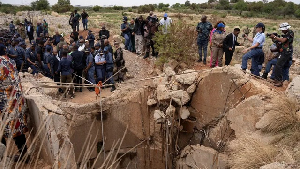The Sunyani Diocese of the Anglican Church has affirmed its support for the government’s vision and initiative to ensure access to Senior High School (SHS) education by every qualified Ghanaian Junior High School (JHS) graduate.
According to the Church, the introduction of the free SHS education policy and the double-track system to pave way for every Ghanaian child, regardless of family background or location to enjoy secondary education was laudable as it would offer opportunities to all qualified students.
Right Reverend Dr. Festus Yeboah Asuamah, Anglican Bishop of Sunyani gave the affirmation on when he was speaking at the opening of the Third Session of the Fourth Synod of the Church on Friday in Sunyani.
The four-day programme on the theme “Envision Divine Favour for Excellence in Church Growth and Development” that spanned Thursday, September 6 to Sunday, September 9, 2018 was attended by about 100 delegates from the entire Diocese.
They included all the clergy and religious, delegates from the Diocese’s six arch-Deaneries as well as representatives of men’s fellowship, women’s societies and youth and children’s organisations.
Rt. Rev. Dr. Asuamah noted that every new system had its initial challenges and teething problems, saying that it should not be taken as obstacles towards failure, but rather a call on stakeholders to identify solutions to address them for efficient and effective management to yield good results for national progress.
Rt Rev. Dr. Asuamah said education was a major key factor for holistic national development and the essential thing was for every Ghanaian, irrespective of political persuasion or religious background to support government for the successful implementation of the policy.
He appealed to other Christian denominations and religious bodies to collaborate with government to be able to implement pragmatic socio-economic policies for rapid progress of the national developmental agenda.
The Bishop entreated Ghanaians not to expect too much from government instantly because “governance is a process” but “we should all exercise patience and seek explanation of issues and understand them well, so that, there would not be any misunderstanding between the citizens and the government”, he emphasised.
On the construction of the national Cathedral, Rt. Rev. Dr. Asuamah said it was a laudable project that would be highly beneficial to not only Christians, but all religious bodies and appealed to government’s communicators to better explain the rationale to avoid misunderstanding from a section of Ghanaians.
Other issues of national importance, the Synod discussed included; the menace of ‘galamsey’ (illegal mining), improper sanitation practices, the need for all Ghanaians to contribute control and prevent acts of bribery and corruption, the youth indulgence in social vices such as promiscuity, drug abuse and alcoholism.
As a climax of the event, four persons who had undergone training to become Priests in the Church were ordained by Rt. Rev. Dr. Asuamah as Deacons for them to serve in the Diaconate Ministry in preparation for about one year before their ordination into the Priestly Ministry.
Religion of Monday, 10 September 2018
Source: ghananewsagency.org

















